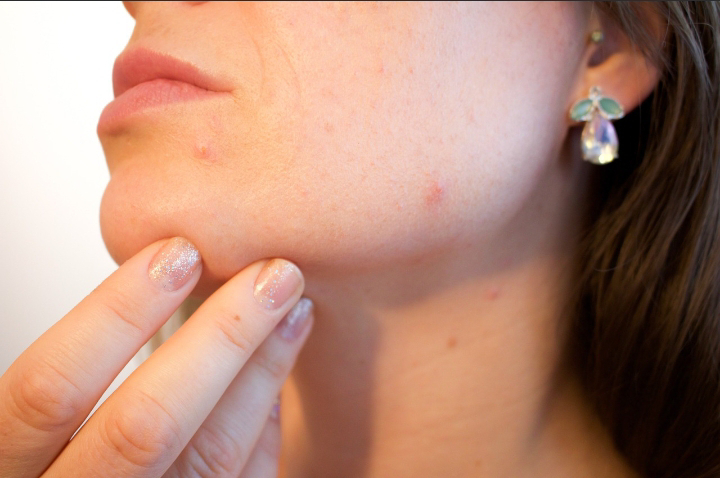5 Common Reasons of Hormonal Imbalance
5 Common Reasons of Hormonal Imbalance
Your body starts experiencing certain changes as you enter your teens. Facial hairs, dry skin, unexplained weight loss or gain, acne, and anxiety, sometimes you notice that these changes bother you more than others.
Towards middle age, this tiredness or being unwell often lingers. Most of you, whether men or women, may feel or notice one or more different symptoms like loss of hair, weight gain, an increase in heart rate, a feeling of loneliness and sadness, anxiety, irritability, and depression.
What could be the reason you and many others feel sick and unhappy? In many cases, a visit to your doctor results in the diagnosis of hormonal imbalance as the source of the symptoms. All these changes in the body can be due to hormonal imbalance, and they can affect individuals at any age, whether they are teenagers, young adults, middle-aged, or seniors.
Those of you who are middle-aged accept these changes as part of ageing, but you should know more about them and create awareness. Of course, you can talk to your doctor and learn how it should be handled.
What is the hormonal imbalance?
A hormonal imbalance happens when you have excess or lack of one or more hormones. Hormones are in fact chemical messengers of our body. Hormonal imbalance is a broad term that can represent many different hormone-related conditions.
Hormonal imbalances are typically caused by problems with your endocrine system. This system has eight major glands in various locations around your body.
These glands produce hormones — chemical messengers that travel throughout your body in your blood. They help your organs and tissues perform and coordinate your various physical functions.
Most hormonal imbalances happen when your body is making either too much or too little of a particular hormone or when your body can’t properly respond to the hormones that are present.
Hormonal imbalance in women
Women often experience hormonal imbalance at naturally occurring points in their lives while growing up like menstruation, puberty, pregnancy and menopause. Certain medical conditions, lifestyle habits, environmental conditions, and endocrine gland malfunctions can be the other causes of hormonal imbalance in females.
Hormonal imbalance in men
Hormonal imbalance in men can be observed in unexplained weight loss, difficulty sleeping, headaches, and excessive sweating. As a result, men with low testosterone often suffer from many problems. Fatigue, depression, poor mental focus, an inability to maintain muscle mass, and infertility are some of them.
Hormonal imbalance in teenagers
When it comes to hormonal imbalances, teenagers are usually the most affected. They need to be regularly counselled for the problems they face or may face. The symptoms of hormonal imbalance in teenage girls can be heavy or irregular periods, hair loss, night sweats, and headaches.
Similarly, the symptoms of hormonal imbalance in teenage males may vary from loss of muscle mass, decrease in body hair and beard growth, hot flashes, and difficulty concentrating. These symptoms should not be confused with their normal development. However, if there is a problem, medical attention should be sought.
Causes of hormonal imbalance
Certain medical conditions, lifestyle habits, environmental conditions, and endocrine gland malfunctions can be other causes of hormonal imbalance in females.
1, Unhealthy diet
Processed and fast food, starchy carbohydrates, and sugar lead to symptoms of hormone imbalance. These symptoms include moodiness, weight gain, fatigue, sleeplessness, wrinkles, and diseases. To balance the hormones, you need the right balance of nutrients. If you don't eat nutritious food, your hormonal balance will suffer.
2, Excessive stress
Stress affects the body, including the musculoskeletal, respiratory, cardiovascular, endocrine, gastrointestinal, nervous, and reproductive systems.
Stress can disrupt the body's nat hormonal balance, causing obesity, insomnia, and low energy levels.
3, High percentage of body fat
Obesity is a major factor in hormonal imbalance. A high percentage of body fat may lead to hypothyroidism, Cushing’s disease, and growth hormone deficiency. Growth hormone also affects metabolism (the rate at which we burn energy).
Researchers have found that growth hormone levels in people who are obese are lower than in people of normal weight.
Pesticides and other ToxinsPolluting chemicals found in the environment interfere with the functioning of the endocrine system. They are also called endocrine-disrupting chemicals (EDCs).
Toxins are artificial chemicals that interfere with the proper functioning of our hormones, air pollution may affect reproductive health, leading to sex hormone disorders, metabolic diseases, and even infertility.
5, Overactive or underactive thyroid
When your thyroid produces too many or too few hormones, it can cause symptoms.
Hypothyroidism is the term for an underactive thyroid, one that produces too few hormones
Hyperthyroidism describes an overactive thyroid, one that produces too many hormones.
Such symptoms need immediate attention and an appointment with your health practitioner.
Signs and symptoms of a hormonal imbalance
1, Weight gain is observed in most individuals, especially women.
2, Hump of fat between the shoulders.
3, Unexplained and sometimes sudden weight loss.
4, Fatigue, muscle weakness, muscle aches, tenderness, and stiffness.
7, Feeling pain, stiffness, or swelling in your joints.
8, Increased or decreased heart rate, especially in the elderly.
Too much or too little of a particular hormone can throw off your body's balance and have a series of strange effects, including weight gain, depression, anxiety, infertility, thinning hair, or even acne. Thankfully, hormonal imbalance can be treatable.
By












Comments